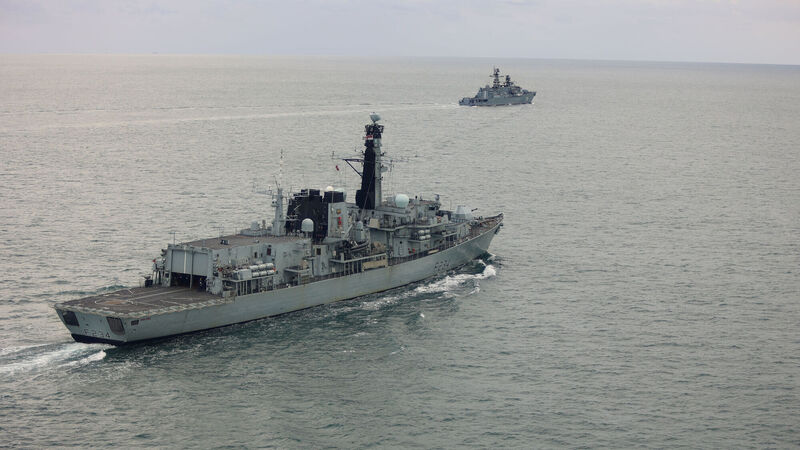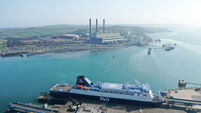New strategy to highlight need for laws to tackle Russian shadow fleet

British navy ship Iron Duke shadowing a Russian warship and a freighter through British seas last month. Picture: MoD/Crown Copyright/PA Wire
New EU legal measures to tackle the Russian shadow fleet and “stress testing” the security of critical sub-sea infrastructure are likely to form part of the forthcoming Maritime Security Strategy, it has emerged.
The Oireachtas Committee on Defence and National Security was told new cross-Government coordination mechanisms — allowing for the secure sharing of information, real-time analysis and better decision making — were also likely to form part of the strategy.










